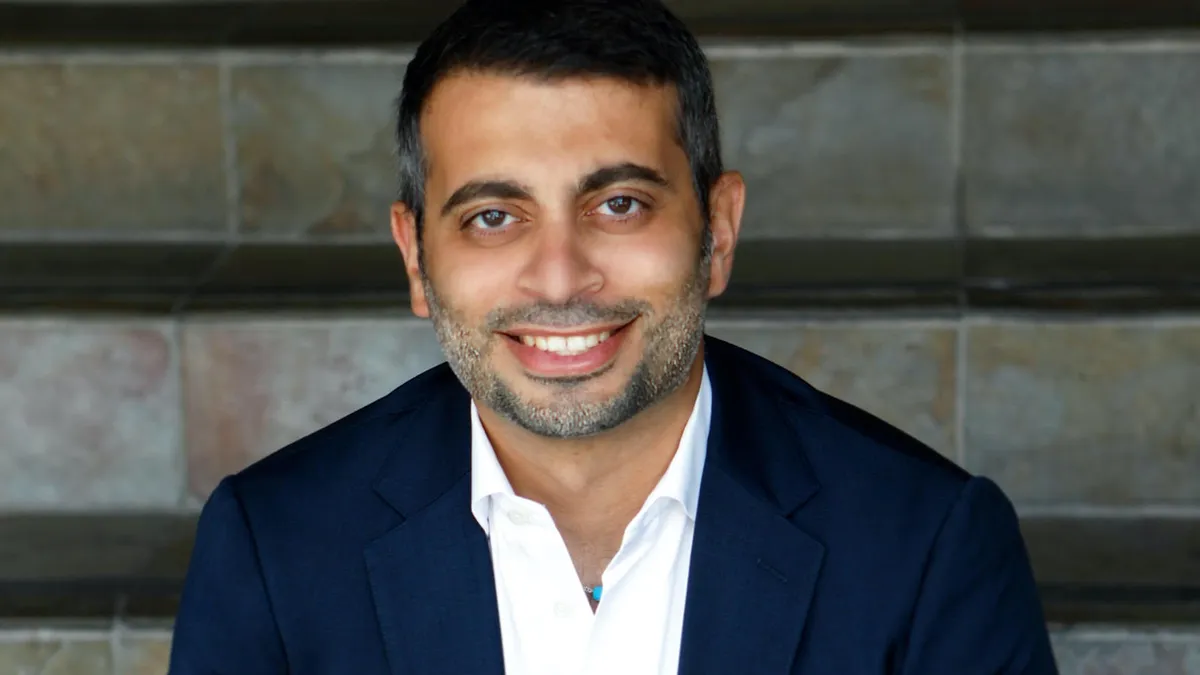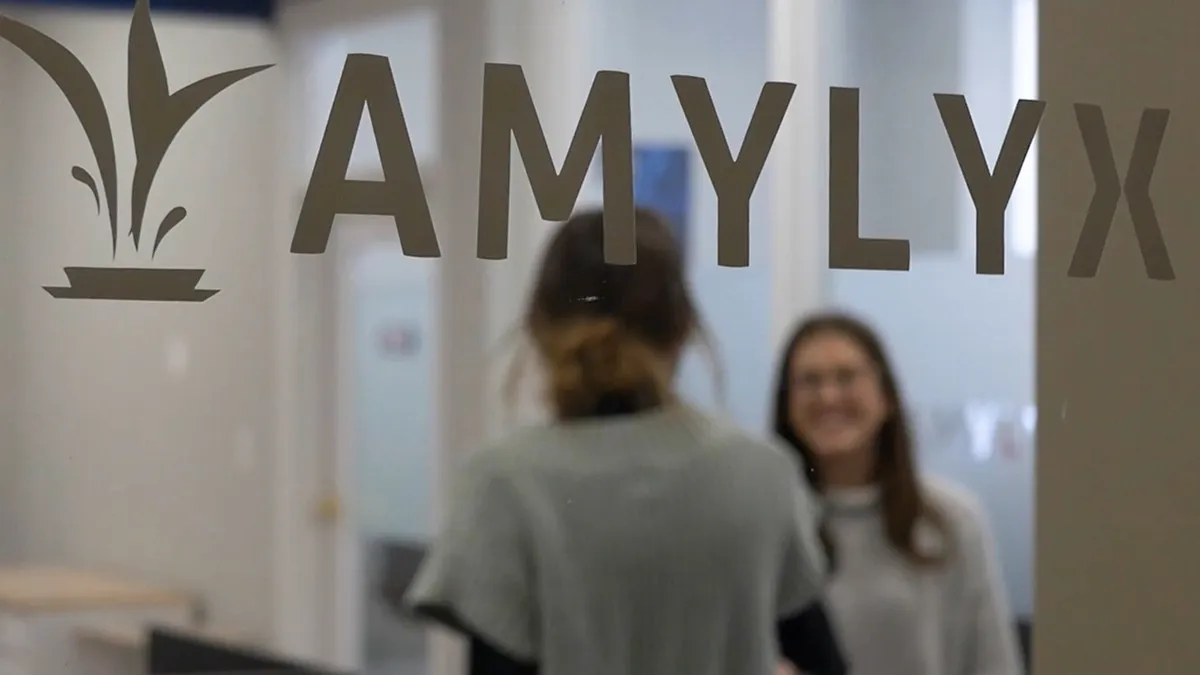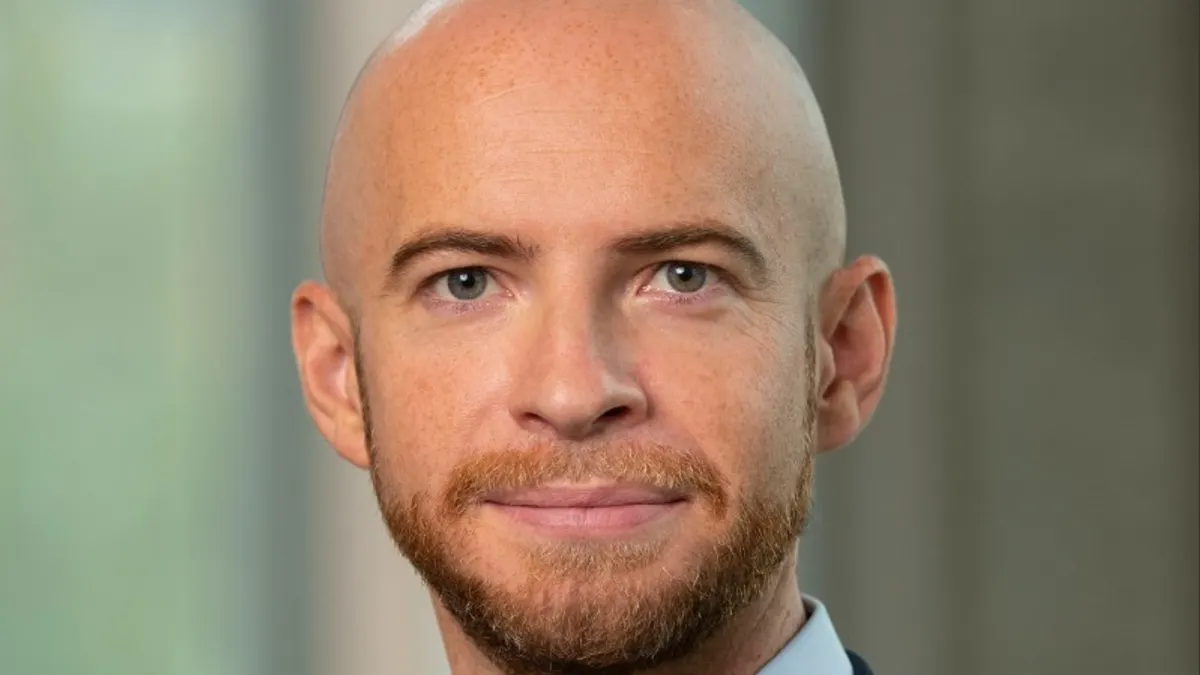Rami Elghandour was 40 years old and enjoying his life to the fullest. The father of four was retired from his role as CEO of the neuromodulation company Nevro, and was spending his time traveling with his family, going to car shows like the Pebble Beach Concours d'Elegance, seeing friends, serving as an exec-in-residence at a venture fund, and working in an advisory capacity elsewhere.
“I was incredibly busy for a retired person,” he said. “I wasn't one of these people where my personality was tied up in what I did. I was perfectly content not having a job and enjoying my life.”
It was a well-earned break. He’d spent seven years at Nevro, first as chief business officer, then president and CEO, after working as a principal of venture investments at the Johnson & Johnson Development Corporation.
“I built (Nevro) from about 30 to 1,000 people, and nearly $400 million in revenue, and took it public, and ran three successful pivotal studies,” he said.
When he left the company in 2019, he was unsure about what he wanted to do next.
“I was certainly considering just calling it a career,” he said. “It was a great career up until that point and I achieved a lot — more than I ever hoped I would be able to achieve.”
But like so many people, Elghandour found that the pandemic changed his plans.
“I know it's cliche to say this,” he said. “But it really made you realize that life can change drastically at any moment. And particularly it being a public health crisis, I just thought to myself: ‘Do I really want to spend my 40s just hanging out? Or do I want to do something really impactful?’ And the answer to that was pretty easy.”
In January 2021 Elghandour joined the CAR-T cell therapy company Arcellx as its chairman and CEO. Arcellx is a clinical stage biotech company whose lead product candidate, CART-ddBCMA, is being developed for the treatment of relapsed or refractory multiple myeloma in an ongoing phase 1 study and has been granted an FDA fast track, orphan drug and regenerative medicine advanced therapy designations. Its phase 2 pivotal study for that product is slated to begin by the end of this year, Elghandour said.
Now settled into his new role, Elghandour isn’t just back in the industry. He’s at the forefront of an ambitious effort to “destroy cancer” — as the company puts it — while challenging “convention.” It’s the perfect goal for someone looking to cap their career off with a world-altering achievement, and one that is, in a roundabout way, also perfectly fit for Elghandour.
The right leadership at the right time
Elghandour began his career as an engineer, but a chance friendship altered his path.
“My first job was literally designing circuits and writing code in a healthcare company. We made implantable neurostimulators for treating chronic pain,” he said. “Kind of what changed my life was becoming really good friends with our CFO, for no other reason than we were in a fantasy football league at work together. There wasn’t really a lot of reason otherwise for me to talk to this guy.”
That CFO convinced Elghandour of his leadership potential and to pursue his MBA at The Wharton School at the University of Pennsylvania. It was a career path that he’d never envisioned for himself. Elghandour’s family is originally from Egypt, and he lived there from the ages of 2 to 10 before moving to the U.S.
“We didn't live in the nicest places. I didn't get to go to the best schools,” he said. “I didn’t really have a lot of access to people who were successful in the business world or got to learn about what those careers look like.”
But he quickly found that he had an affinity for business and leadership. He loved it more than engineering, which he admits, makes sense in hindsight.
“If it works, it could really change the world, and I think we have that kind of potential.”

Rami Elghandour
CEO, Arcellx
As a kid, “I took all my toys apart, (but) I wasn’t particularly interested in putting them back together,” he said. “So that might have given me a heads-up that the engineering career might have been short lived.”
That knack for business and leadership made Arcellx and Elghandour the right fit at the right time. He said before he came onboard, the company was at an “inflection point” where they had a “super differentiated technology” and proof of concept but needed a different kind of leadership to take it to the next level.
Elghandour credits his “ability to define a vision, hire exceptional people, and build a culture that is centered around diversity, collaboration and performance” with the company’s current success. Since joining, he has “built Arcellx’s management team, raised a $120 million crossover, scaled the organization, and lead the company to a successful $142 million IPO in February 2022,” he wrote on LinkedIn. He also led a $128 million secondary offering in June.
“In good times, the rising tide raises all boats, but this has been an especially difficult and rocky time in biotech,” he said. “So I think leadership really matters. I’ve had to make a lot of really hard decisions since I joined, including deciding to take the company public when that wasn't necessarily such an easy or obvious decision given the macro environment.”
He’s also been committed to diversity, equity and inclusion.
“Diversity makes us smarter,” he said. “It allows us to see alternative points of view.”
‘Time magazine cover potential’
In deciding where to take his career, Elghandour didn’t want to join just any company. He wanted to work in a space “that I thought could change the world in the next decade.”
He believes that Arcellx has the potential to do that, and that its lead program “has the potential could be a best-in-class therapeutic for patients suffering from multiple myeloma and that in itself is incredibly meaningful work.”
But even beyond that, he said its novel platform technology, D-Domain, a synthetic binding construct which enhances cell therapies, is “geared toward addressing the greatest challenges in oncology” and could be “transformational.”
It’s something that’s made postponing retirement very worth it.
“I wanted to work on something that has that Time magazine cover potential,” he said. “If it works, it could really change the world, and I think we have that kind of potential.”

















